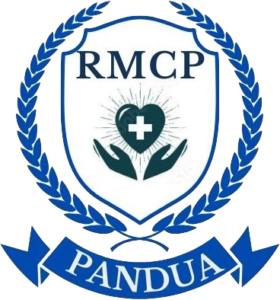Diploma in Pharmacy (D.Pharmacy) Syllabus
The Diploma in Pharmacy (D.Pharm) is a two-year program followed by a practical training session. The course is designed to prepare students with a strong foundation in pharmaceutical sciences and hands-on experience in various aspects of pharmacy practice. Below is an outline of the syllabus as per the guidelines of the Pharmacy Council of India (PCI):
Year 1: First Year D.Pharmacy
Subjects:
Pharmaceutics-I
- Introduction to different dosage forms
- Metrology and pharmaceutical calculations
- Prescription handling
- Various pharmaceutical aids and packaging materials
Pharmaceutical Chemistry-I
- Fundamentals of chemistry
- Inorganic pharmaceuticals
- Analytical techniques and reagents
Pharmacognosy
- Study of medicinal plants and their uses
- Classification and properties of natural drugs
- Extraction and isolation of active constituents
Biochemistry and Clinical Pathology
- Basics of biochemistry
- Metabolism of biomolecules
- Enzyme activity
- Clinical pathology tests
Human Anatomy and Physiology
- Structure and function of the human body
- Overview of body systems (circulatory, respiratory, nervous, etc.)
- Homeostasis and vital processes
Health Education and Community Pharmacy
- Role of pharmacists in public health
- Health promotion strategies
- Environmental and occupational health
Year 2: Second Year D.Pharmacy
Subjects:
Pharmaceutics-II
- Advanced pharmaceutical dosage forms
- Storage and stability of drugs
- Sterile products and surgical dressings
Pharmaceutical Chemistry-II
- Organic pharmaceuticals
- Structure, synthesis, and properties of drug molecules
- Drug interactions
Pharmacology and Toxicology
- Mechanism of drug action
- Pharmacokinetics and pharmacodynamics
- Common toxicological effects and treatments
Pharmaceutical Jurisprudence
- Laws governing pharmacy practice in India
- Ethics and regulations related to pharmaceuticals
- Drug and Cosmetic Act, Pharmacy Act
Drug Store and Business Management
- Basics of business management
- Inventory control, supply chain management
- Accounting and finance in pharmacy
Hospital and Clinical Pharmacy
- Role of pharmacy in hospital and clinical settings
- Drug distribution systems
- Patient counseling and medication adherence
Practical Training
- Internship/Practical Experience:
After completing the two years of academic study, students are required to undergo 500 hours of practical training over a minimum period of 3 months in a hospital, pharmacy, or pharmaceutical manufacturing unit approved by the PCI.
Assessment and Examinations
- Theory and Practical Examinations: Conducted at the end of each academic year.
- Internal Assessments: Periodic evaluations through assignments, quizzes, and tests.
Career Pathways After D.Pharmacy
After completing the D.Pharmacy course, students can pursue careers as:
- Community Pharmacists
- Hospital Pharmacists
- Medical Representatives
- Pharmaceutical Manufacturing Assistants
- Entrepreneurs (starting their own pharmacy)
They may also choose to continue their education by pursuing a Bachelor of Pharmacy (B.Pharm) for advanced career opportunities.
